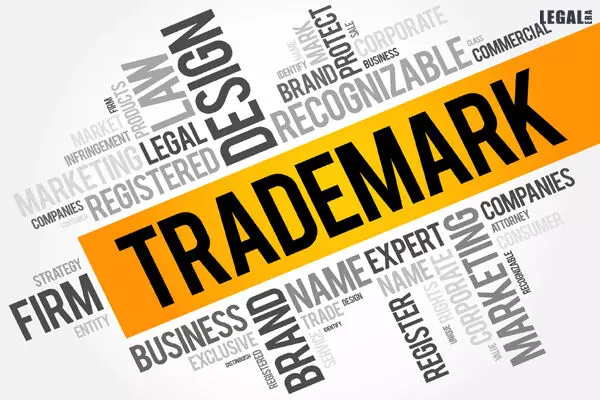- Home
- News
- Articles+
- Aerospace
- Agriculture
- Alternate Dispute Resolution
- Banking and Finance
- Bankruptcy
- Book Review
- Bribery & Corruption
- Commercial Litigation
- Competition Law
- Conference Reports
- Consumer Products
- Contract
- Corporate Governance
- Corporate Law
- Covid-19
- Cryptocurrency
- Cybersecurity
- Data Protection
- Defence
- Digital Economy
- E-commerce
- Employment Law
- Energy and Natural Resources
- Entertainment and Sports Law
- Environmental Law
- FDI
- Food and Beverage
- Health Care
- IBC Diaries
- Insurance Law
- Intellectual Property
- International Law
- Know the Law
- Labour Laws
- Litigation
- Litigation Funding
- Manufacturing
- Mergers & Acquisitions
- NFTs
- Privacy
- Private Equity
- Project Finance
- Real Estate
- Risk and Compliance
- Technology Media and Telecom
- Tributes
- Zoom In
- Take On Board
- In Focus
- Law & Policy and Regulation
- IP & Tech Era
- Viewpoint
- Arbitration & Mediation
- Tax
- Student Corner
- AI
- ESG
- Gaming
- Inclusion & Diversity
- Law Firms
- In-House
- Rankings
- E-Magazine
- Legal Era TV
- Events
- News
- Articles
- Aerospace
- Agriculture
- Alternate Dispute Resolution
- Banking and Finance
- Bankruptcy
- Book Review
- Bribery & Corruption
- Commercial Litigation
- Competition Law
- Conference Reports
- Consumer Products
- Contract
- Corporate Governance
- Corporate Law
- Covid-19
- Cryptocurrency
- Cybersecurity
- Data Protection
- Defence
- Digital Economy
- E-commerce
- Employment Law
- Energy and Natural Resources
- Entertainment and Sports Law
- Environmental Law
- FDI
- Food and Beverage
- Health Care
- IBC Diaries
- Insurance Law
- Intellectual Property
- International Law
- Know the Law
- Labour Laws
- Litigation
- Litigation Funding
- Manufacturing
- Mergers & Acquisitions
- NFTs
- Privacy
- Private Equity
- Project Finance
- Real Estate
- Risk and Compliance
- Technology Media and Telecom
- Tributes
- Zoom In
- Take On Board
- In Focus
- Law & Policy and Regulation
- IP & Tech Era
- Viewpoint
- Arbitration & Mediation
- Tax
- Student Corner
- AI
- ESG
- Gaming
- Inclusion & Diversity
- Law Firms
- In-House
- Rankings
- E-Magazine
- Legal Era TV
- Events
Delhi High Court rules in favor of Nirma; jewelry brand Nima loses

Delhi High Court rules in favor of Nirma; jewelry brand Nima loses
The detergent company adopted the two trademarks in 1969 and 1982
The Delhi High Court has directed the removal of a trademark belonging to a metal alloy jewelery brand Nima from the Register of Trade Marks. The court ruled that it was deceptively similar to Nirma, the well-known detergent company.
While allowing the rectification petition filed by the detergent company in the Nirma Limited vs Purnima Gupta & Anr case, Justice Navin Chawla held, "The registration of the mark 'Nima' in favor of the respondent is not only likely to cause deception in the mind of the unwary consumer of its association with the petitioner, but also hamper any future plan of the petitioner to expand its business to other goods, especially manufactured or marketed by it."
The court reasoned that besides hampering Nirma's possible plans of expansion to other industries, the use of the trademark could lead to a dilution of its mark. Thus, it held that the registration of Nima's mark could not be allowed and was liable to be cancelled.
Nirma claimed that its predecessor in-title had coined and adopted the trademarks 'Nirma' and 'Nima' in 1969 and 1982, respectively.
Thereafter, the company had been using these trademarks for various segments, including toilet soaps, detergents, liquid blue, scouring bars, shampoo, toothpaste, chemicals, tea, salt, spices, and food supplements.
However, it noticed that a jewelery brand was granted registration for its trademark, 'Nima'. This was published in the Trade Marks Journal in November 2003, even though the petitioner was using the trademark since 2000.
The court observed, "The mark of the petitioner 'Nima' is identical to that of the respondent. Though registered as a device mark, the word is a predominant part of the mark of the respondent, except that it is in a stylized version."
It noted that the respondent's mark 'Nima' was also phonetically and deceptively similar to the petitioner's mark 'Nirma'. The court acknowledged that the petitioner's mark had been declared a 'well-known trademark' under the Trade Marks Act, 1999.
The bench held that the petitioner was the prior uninterrupted user and registration holder of the marks 'Nirma' and 'Nima' and had established goodwill and reputation in the market.



